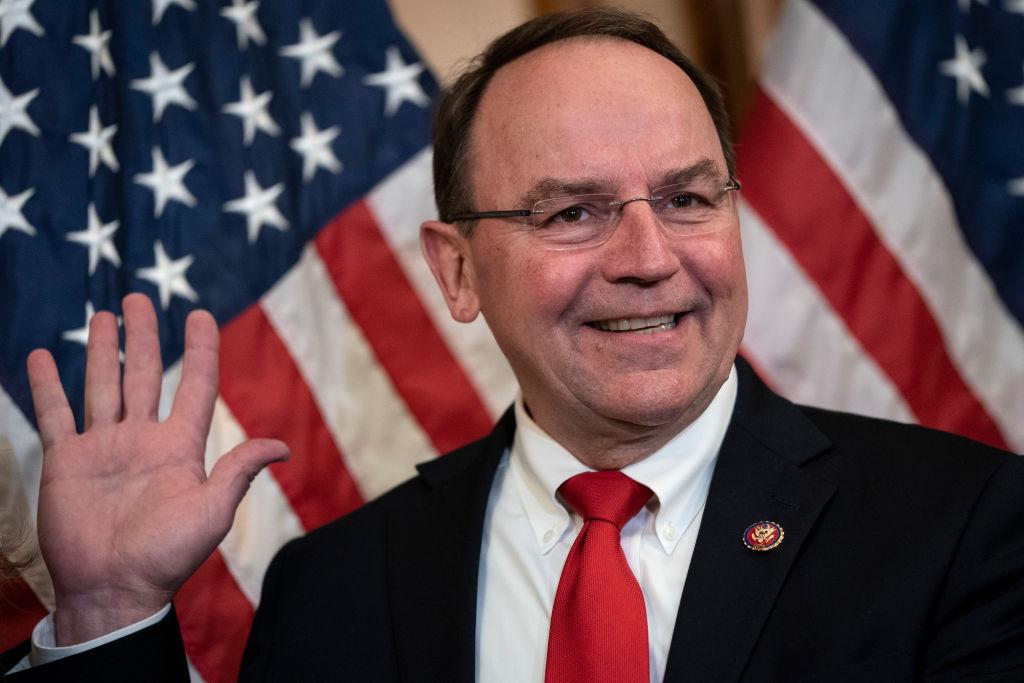TAIPEI, Taiwan—U.S. Rep. Tom Tiffany (R-Wis.) has introduced legislation calling on the U.S. government to resume formal diplomatic relations with Taiwan, while dropping the “one-China policy.”
“For more than 40 years, American presidents of both political parties have repeated Beijing’s bogus lie that Taiwan is part of Communist China–despite the objective reality that it is not,” stated Tiffany, according to a Sept. 17 press release from his office.
The congressman added: “It is long past time that America consigned the ‘One China Policy’ to the dustbin of history.”
The United States currently has no formal diplomatic ties with Taiwan, since Washington changed its diplomatic recognition in favor of Beijing in January 1979.
The United States has long held a “one-China policy,” which asserts that there is only one sovereign state with the name “China,” but it is different from the “one-China principle” under which the Chinese regime asserts sovereignty over Taiwan. The Taiwan government has also rejected China’s “one-China principle.”
The United States has maintained a non-diplomatic relationship with Taipei based on the Taiwan Relations Act (TRA), which was signed into law by former President Jimmy Carter in April 1979.
The TRA authorizes the United States to continue “commercial, cultural, and other relations” with Taiwan, as well as to provide the island with military equipment for its self-defense. Additionally, the TRA calls for the setup of a nonprofit corporation called the American Institute in Taiwan, which is now the de-facto U.S. embassy on the island.
Meanwhile, China considers Taiwan as a renegade province, despite the fact that the island is a de-facto independent country with a constitution, democratically-elected officials, military, and currency. Beijing has never renounced its desire to use military force to bring the island under its fold.
The bill (H.Con.Res.117) proposes resuming formal diplomatic ties with Taiwan and ending the United States’ adoption of “One China Policy,” in addition to directing the U.S. administration to support Taiwan’s membership in international organizations, and initiating negotiations with Taiwan for a bilateral free-trade agreement.
Tiffany’s bill is a concurrent resolution that lacks the force of law. It also does not require the signature of the U.S. President to be enacted.
As Beijing sees itself as a “legitimate representative” of Taiwan, it has blocked the island from joining international organizations, such as the World Health Organization (WHO).
“America doesn’t need a permission slip from the Chinese Communist Party to talk to its friends and partners around the world,” Tiffany said in the press release.
The relationship between the United States and Taiwan has warmed under the Trump administration.
In August, U.S. Health and Human Services Secretary Alex Azar visited Taiwan, becoming the highest-level U.S. cabinet official to come to the island since 1979.
Currently, U.S. Under Secretary of State Keith Krach is in Taiwan for a three-day visit, the highest-level State Department official to visit Taiwan in decades. Part of his trip is to attend a memorial service for Taiwan’s former President Lee Teng-hui.
Lee, known as the father of Taiwan’s democracy, passed away on July 30.
According to local media, Krach held a meeting with Taiwan’s economic minister, foreign minister, and vice premier on Friday morning. According to Taiwan’s Ministry of Economic Affairs, the meeting was intended as making preparations for a future US-Taiwan Economic and Commercial Dialogue.
David Stilwell, assistant secretary of state for the Bureau of East Asian and Pacific Affairs, announced the new bilateral economic dialogue while speaking at a virtual meeting held by the U.S. think tank Heritage Foundation on Aug. 31.
Taiwan President Tsai Ing-wen held a banquet Friday evening to welcome Krach and his delegation. According to a press release from the Presidential Office, Tsai and Krach held discussions on how to deepen bilateral ties.





